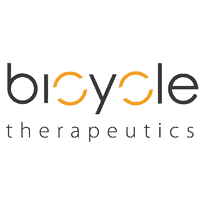
UK biotech company Bicycle Therapeutics is to develop a new class of antibacterial agents to tackle antimicrobial resistance (AMR) after receiving a grant of £496,000 ($640,000) from the government.
The Cambridge-based firm will use its proprietary screening platform to discover novel inhibitors of Penicillin Binding Proteins (PBPs), funded by the UK government as part of its drive to tackle the global threat of superbugs resistant to existing antibiotics.
Bicycle’s expertise is in developing a unique class of chemically synthesized medicines based on its proprietary bicyclic peptide (Bicycle) platform, which aims to address therapeutic needs unreachable with existing treatment modalities.
PBP proteins are present in all bacteria and they operate by accelerating the production of bacterial cell wall biosynthesis, which triggers an effective response to environmental threats thanks to the protein’s genetic plasticity.
Penicillin targets multiple PBPs simultaneously within bacteria, however many bacteria have overtime become resistant to this medication.
AMR developed as a consequence of overusing antibiotics and as a result, certain strains of diseases, such as tuberculosis and Staphylococcus aureus are now unresponsive to the drugs due to the resistant-evolving bacteria.
Without effective antibiotics most medical practices including routine surgery, transplants and even chemotherapy will be less safe, and even minor infections could prove fatal in a post-antibiotic era.
“Bicycle’s unique and versatile technology is well-suited to creating a new class of antibacterial agents to address widespread antibiotic resistance, and we are honoured to receive this funding from [government agency] SBRI Healthcare,” said Kevin Lee, chief executive of Bicycle Therapeutics.
The Small Business Research Initiative (SBRI) awards companies that identify new ideas and technologies that address future challenges to the NHS.
The project will be led by Dr. Mike Dawson (below), who has more than 30 years of experience in infectious disease drug discovery and development.

Lee adds: “The Department of Health and Social Care’s recent announcement of a five-year plan to target antimicrobial resistance, along with its commitment to trial reimbursement mechanisms that are decoupled from antibiotic sales, marks a sea change in incentives for companies like ours with the technology to address antibiotic resistance. Patients worldwide will benefit from a more robust market for antimicrobials.”
The move builds on the UK’s 20-year vision for a world in which AMR is “contained and controlled” by 2024, which will require co-operation between nations and the generation of new ‘last line of defence’ treatments.
Bicycle’s main focus is in oncology, where the company is developing targeted cytotoxics (Bicycle Toxin Conjugates), aimed at developing novel cancer immunotherapies to harness innate immune activators and T-cell modulators. The company’s lead programme, BT1718, is being evaluated in a phase 1/2a trial in collaboration with Cancer Research UK.




